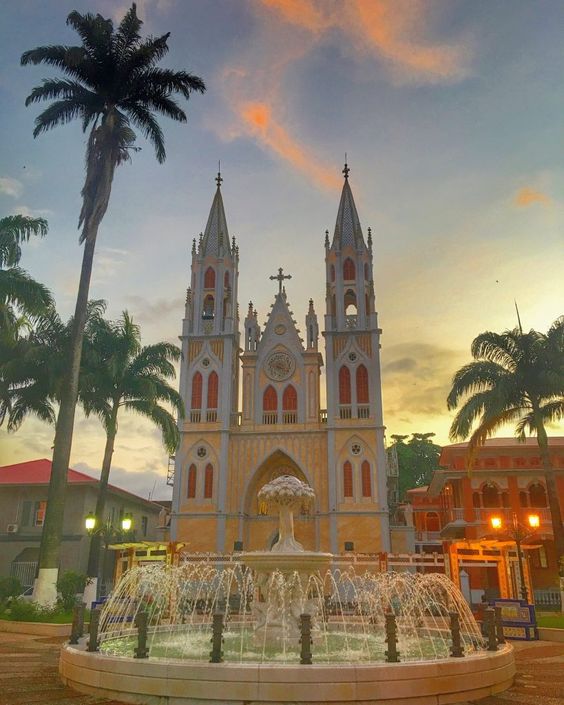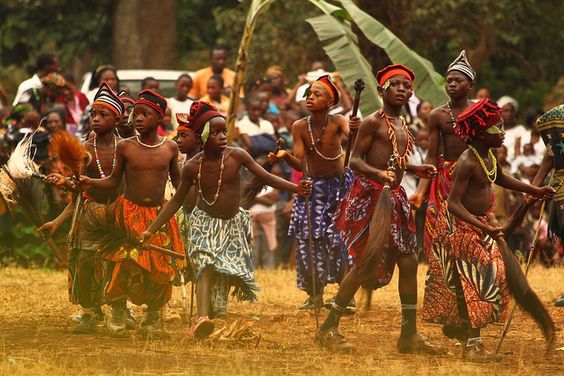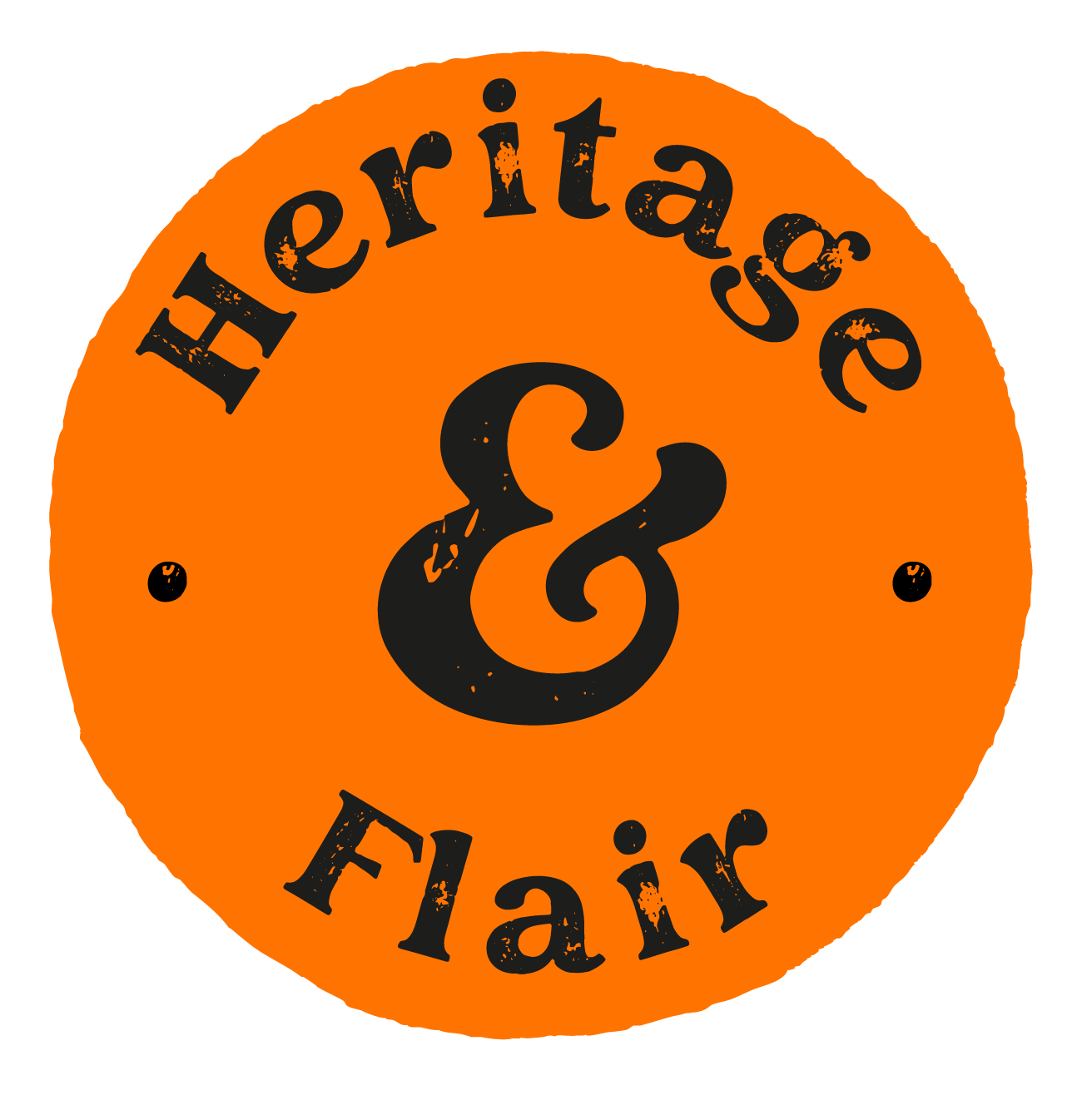
Photo by Toro Tseleng
EQUATORIAL GUINEA
Equatorial Guinea is a small, but vibrant country located on the west coast of Central Africa, bordered by Cameroon to the north, Gabon to the east and south, and the Atlantic Ocean to the west.
The nation is unique in that it includes both a mainland region, known as Río Muni, and several islands, with Bioko Island—home to the capital city Malabo—being the most prominent. Malabo is not only the political center but also a hub for Equatorial Guinea’s growing oil industry. Malabo is the administrative capital, while Ciudad de la Paz (formerly Oyala) is being developed as the future planned capital city on the mainland.
The population comprises of several ethnic groups, including the Fang, Bubi, Ndowe, and Annobonese each with its own languages and cultural traditions. Spanish is the official language with French and Portuguese are also officially recognised,
Equatorial Guinea gained independence from Spain in 1968, making it one of the few Spanish-speaking countries in Africa. The journey to independence and post-colonial era has shaped its contemporary political landscape. Today, it operates as a republic, with a presidential system, where the President serves as both the head of state and head of government.
The country’s economy has experienced significant growth, largely driven by oil production, which began in the 1990s. Oil now accounts for the majority of Equatorial Guinea’s GDP, though efforts are underway to diversify into other sectors, such as agriculture, tourism, and fisheries.
In terms of natural resources, Equatorial Guinea possesses an array of mineral resources, including oil, gas, and timber. Its rainforests, rivers, and diverse wildlife make it an attractive, yet lesser-known, destination for eco-tourism. The country is working to develop its tourism sector, promoting its unique cultural heritage and biodiversity.
Equatorial Guinea is home to a rich cultural heritage, with traditions in music, dance, and art that celebrate the diverse ethnic identities within its borders. The Fang and Bubi peoples, in particular, have a strong cultural presence, with their own languages, customs, and traditional ceremonies.
Equatorial Guinean cuisine features a mix of traditional African ingredients and Spanish influences. Common dishes include fish, plantains, rice, and yuca. Popular meals include “sopa de pescado” (fish soup) and “paella,” reflecting the Spanish legacy.
The famous Balélé dance, for instance, is a traditional dance performed on Bioko Island, especially during festive celebrations..
Hidden Insights: Uncovering Equatorial Guinea
- Monte Alen National Park: Located in the mainland region of Río Muni, Monte Alen National Park is a biodiversity hotspot, home to gorillas, chimpanzees, forest elephants, and many other species. The dense rainforest and picturesque rivers make it an ideal spot for eco-tourism and adventurous exploration.
2.Cacao and Coffee Legacy: Before the discovery of oil, Equatorial Guinea’s economy was predominantly agricultural, with cacao and coffee plantations playing a central role. Some plantations, particularly on Bioko Island, still operate today, offering a glimpse into the country’s colonial and agricultural heritage.
3.Malabo Cathedral: Built in the 19th century, Malabo Cathedral is one of the most iconic architectural sites in Equatorial Guinea. Its Gothic-inspired design stands out in the cityscape of Malabo, reflecting Spanish colonial influence and remaining a significant landmark.
4.Annobón Island: This remote island is known for its pristine beaches, volcanic landscapes, and unique biodiversity. With a small population and limited accessibility, Annobón offers a rare view of untouched African island life and a distinctive culture, with the Annobonese language and unique customs.

Photo by Mohau Mannathoko

Photo by Toro Tseleng
Capital City: Malabo
Population: 1,795,834
Nationality: Equatorial Guinean(s) or Equatoguinean(s)
Location: Central Africa
Languages: Spanish (official) 67.6%, other (includes Fang, Bubi, Portuguese (official), French (official), Fa d’Ambo spoken in Annobon) 32.4% (1994 est.)
Religion: Roman Catholic 88%, Protestant 5%, Muslim 2%, other 5% (animist, Baha’i, Jewish) (2015 est.)
Area Total: 17,364 sq km
Embassy of the Republic of Equatorial Guinea
N/A
Correcting The Map: The True Size Of Africa
The Mercator Projection downplays the size of Global South continents as it makes the Global North look larger
Heritage: What shapes us?
When heritage is mentioned, our minds often leap to the spectacular and the visible: the grandeur of world heritage sites, the majesty of traditional attire, the vibrant swirl of dances and festivals, or the melodies of mother tongues. These are the showpieces of...
HER-itage: Africa’s Phenomenal Queens And Leaders
Honouring and celebrating the incredible contributions of women throughout African history. These remarkable women have shaped nations, led revolutions, and stood against oppression with unwavering resilience. These queens, warriors, and visionaries broke barriers,...
